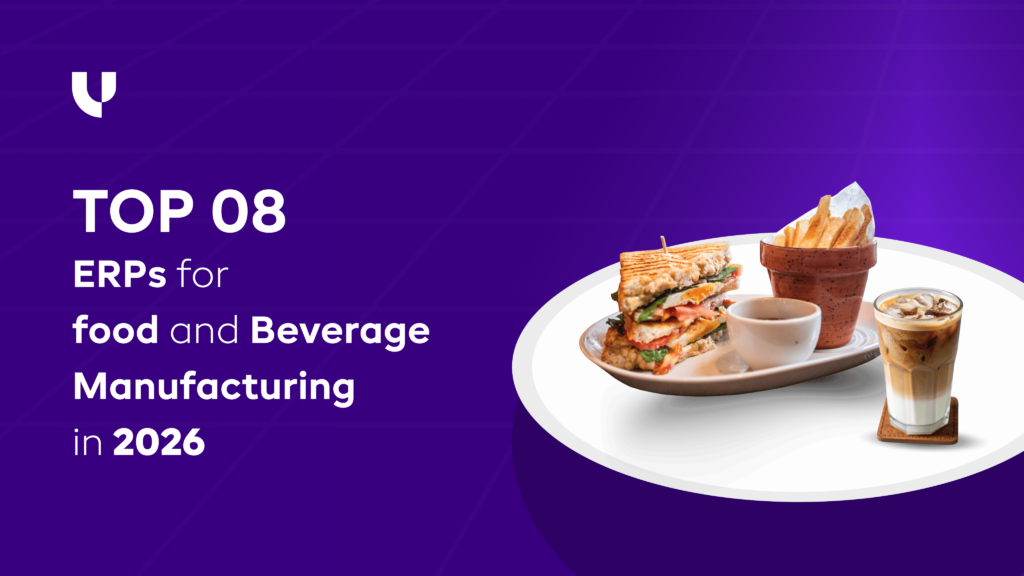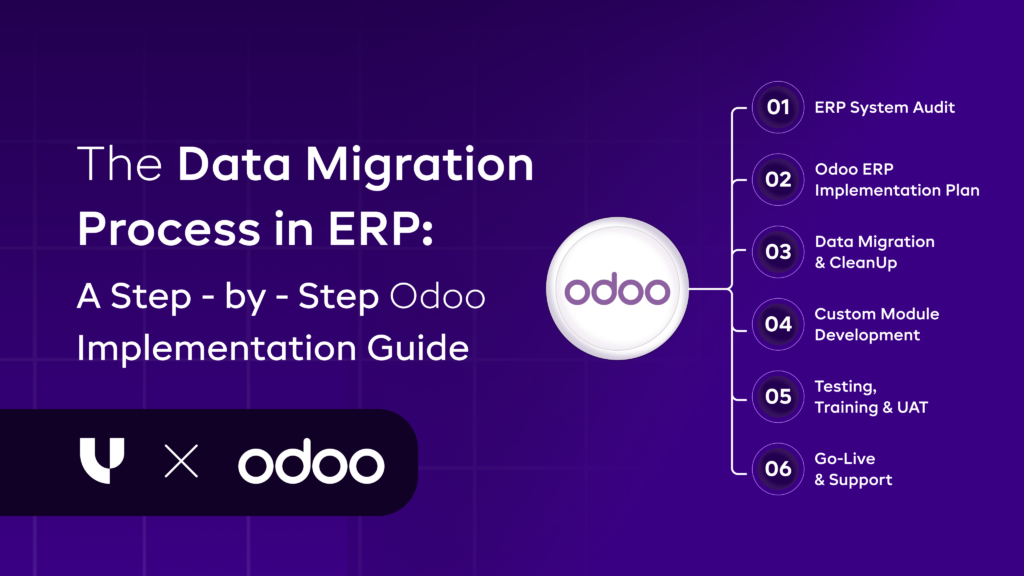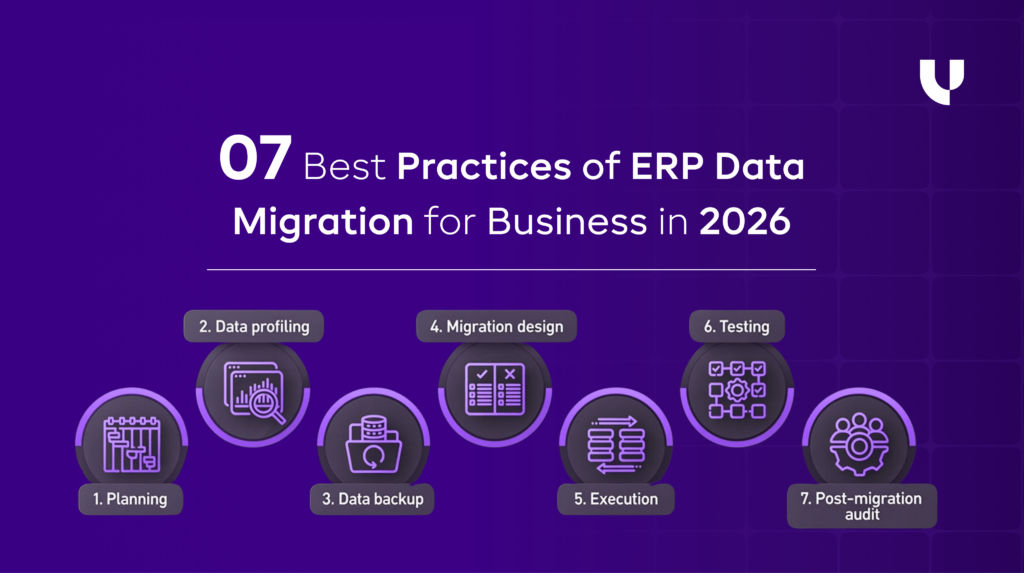Migrating To Odoo: Challenges And Best Practices in 2025
Published on August 28th 2025

Introduction
Growing businesses need more than new customers; they’re on the hunt for better operations and dynamics.
At some point, every business moves to an Enterprise Resource Planning (ERP) for smoother operations. Odoo, with its modular and configurable foundation, has emerged as a popular alternative for enterprises globally. However, switching to Odoo is not without hurdles.
Therefore, this blog takes a closer look at the challenges of migrating to Odoo in 2025. Continue reading as we learn more about how professional Odoo migration services help you streamline operations in the following sections.
How Legacy Systems Hold Businesses Back
Before we go into migration, let's address the elephant in the room: why are old systems no longer sufficient?
- High maintenance costs: Keeping old systems requires considerable IT investments.
- Poor Integration: Legacy technologies often struggle to integrate with modern applications, such as cloud services, CRMs, and eCommerce platforms.
- Limited Scalability: As firms expand, their outdated systems struggle to accommodate new users, increased data volumes, and existing processes.
- Data silos: Information becomes confined in separate systems, making real-time decision-making difficult.
- Security Risks: Old software lacks effective cybersecurity safeguards, exposing businesses to significant security risks.
These limits have a direct influence on production, the customer experience, and profitability. That is why organizations across industries, including healthcare, retail, manufacturing, and finance, are migrating to Odoo ERP.
Why Odoo? What Makes It Special?
Odoo is an open-source ERP system. It offers a suite of tools for managing enterprises.
These technologies include CRM, inventory management, eCommerce, Odoo QuickBooks integration for accounting, and project management, among others. Designed to be very adjustable and adaptable for enterprises. This comprises both small and major organizations.
Unified Platform
Odoo offers a unified platform that combines several business apps into a single seamless solution. This connection reduces the need for several software solutions, resulting in simplified processes and lower complexity.
Cost-Effective
Unlike many ERP solutions, which require significant upfront expenditures and ongoing fees, Odoo offers a more affordable alternative. Its open-source nature and variable pricing make it suitable for enterprises of all sizes.
Scalability
Odoo's modular architecture enables organizations to start with the apps they want and expand as their needs evolve. This scalability ensures that the system can grow alongside the business, supporting new processes and functions.
User-Friendly Interface
Odoo is noted for its intuitive and user-friendly interface, which shortens the learning curve for employees. This simplicity of use leads to increased productivity and faster adoption within the business.
Customizability
Odoo acknowledges that each business is unique and provides broad customization options to reflect this. Companies may modify the platform to meet their individual requirements, ensuring that the ERP system is ideally aligned with their business operations. For businesses that are unable to manage their operations alone, professional Odoo ERP maintenance services help them keep their operations running smoothly.
Challenges of Odoo Migration
Migrating to Odoo entails transitioning from a current ERP system or upgrading to a newer version of Odoo.
Here are some of the primary problems that firms confront during this process:
a. Data Migration Complexities
Transferring significant amounts of data from outdated systems can be challenging. Maintaining data integrity and accuracy during the transfer process is critical to avoiding operational interruptions.
b. Customization Compatibility
Businesses often rely on their existing ERP system. During migration, ensuring that these changes are consistent with Odoo's design and functionality may be tricky.
c. System Downtime
Migration processes, if not carefully managed, can result in considerable system downtime, disrupting corporate operations and productivity.
d. User Training and Adoption
Users must adjust to changing workflows while using a new system. Employees who have not received sufficient training may struggle to use the new system efficiently, which can lower ROI.
e. Cost Management
Migration initiatives frequently have budget overruns owing to unanticipated difficulties. Proper planning and resource allocation are critical to keeping expenses under control.
Want to start a project with us?
Empowering businesses to achieve greatness through strategic guidance and innovative solutions.
Book A Demo
Top 5 Odoo Migration Mistakes to Avoid in 2025
#1 Lack of Clear Business Objectives
One of the most typical Odoo installation issues is starting a project without clear objectives. Businesses sometimes embark on deployments motivated by abstract goals such as "automation" or "digital transformation" without first aligning ERP capabilities with actual business requirements and custom Odoo solutions.
Without a defined goal:
- Teams may misallocate resources or prioritize the incorrect modules.
- It becomes more challenging to develop key performance indicators and quantify progress after deployment.
- Poorly specified scopes frequently result in excessive customisation requests.
- Teams are unsure which problems Odoo is addressing.
This lack of vision typically results in project delays and inefficiency.
Odoo ERP planning should always start with stakeholder meetings to establish quantifiable, time-bound goals. This decreases Odoo project failure risks and establishes a strategic basis.
#2 Selecting the Wrong Odoo Implementation Partner
Always pick an Odoo erp implementation partner who is qualified and experienced, has verified case studies, and offers post-deployment assistance. Choosing a partner with a deep understanding of business scaling ensures that your system doesn't just work on day one, but continues to evolve alongside your organizational needs.
- Many businesses employ low-cost providers with no real-world ERP experience.
- Uncertified partners may violate Odoo best practices and misuse essential functionality.
- Poor project planning and communication impede progress.
- Some manufacturers promote unneeded modules or customisation, which raises expenses.
- A good partner also offers Odoo training and support, not simply coding.
Always pick an Odoo installation partner who is qualified and experienced, has verified case studies, and offers post-deployment assistance.
#3 Neglecting Change Management and User Training
Even the greatest software cannot function if users do not understand how to utilize it. One of the most common yet potentially catastrophic Odoo ERP blunders is failing to train personnel.
- End-users are resistant to new systems that they do not grasp.
- When people use outdated tools, processes become disconnected.
- Incorrect data entry might result in reporting problems and compliance difficulties.
- Low adoption rates undermine the benefits of digital transformation.
- Support teams receive numerous requests for simple operating issues.
Odoo training and support are critical components of implementation. Training should be tailored to each department's needs, such as finance, human resources, and inventories, and should include hands-on learning and documentation.
#4 Over-customization of Odoo Modules
Odoo is modular and very configurable, but it doesn't imply you have to customize everything. Unnecessary or poorly handled customisation causes long-term Odoo customization issues.
- Over-customization drives up the expense of future updates.
- It may cause compatibility issues with regulations and applications.
- Debugging becomes challenging due to the numerous non-standard procedures.
- Your ERP becomes dependent on individual developers, which reduces flexibility.
- It frequently provides little commercial benefit and complicates the customer experience.
Focus on utilizing Odoo's basic features and only customizing when absolutely essential, particularly in business cases where ROI is obvious.
#5 Neglecting Data Cleaning and Migration Planning
Migrating from traditional systems to Odoo without sufficient data preparation carries a significant risk. It causes common Odoo issues such as erroneous reporting, duplicate entries, and unsuccessful syncs.
- Dirty data slows down the initial system performance.
- Incorrect fields and formats hinder functional flow.
- Manual data movement without validation leads to corruption.
- Financial and inventory mistakes might result in compliance fines.
- Users lose faith in the system owing to untrustworthy data.
Spend time auditing, clearing, and organizing old data prior to Odoo deployment. Use before templates and test batches to ensure that the data structure is correct before proceeding with the migration.
Why Migrate to Odoo in 2025?
Odoo continues to evolve, introducing new features and enhancements with each version. Migrating to the most recent version guarantees that your business remains competitive with:
- Enhanced functionality and integration.
- Increased scalability and flexibility.
- Access to the most recent security updates.
- Increased efficiency through automation.
Conclusion
Migrating to Odoo is a strategic move that may revolutionize your company's operations. While the process has its hurdles, taking the appropriate strategy and utilizing Odoo migration services assures a seamless and successful shift. By adopting best practices and collaborating with professionals, you may overcome obstacles and maximize Odoo's potential for your business.
Are you ready to leap? Uncanny Consulting LLP specializes in Odoo migration and provides bespoke solutions to fit your specific company requirements. Contact us today to see how we can help you seamlessly navigate the Odoo migration route.

About Author


